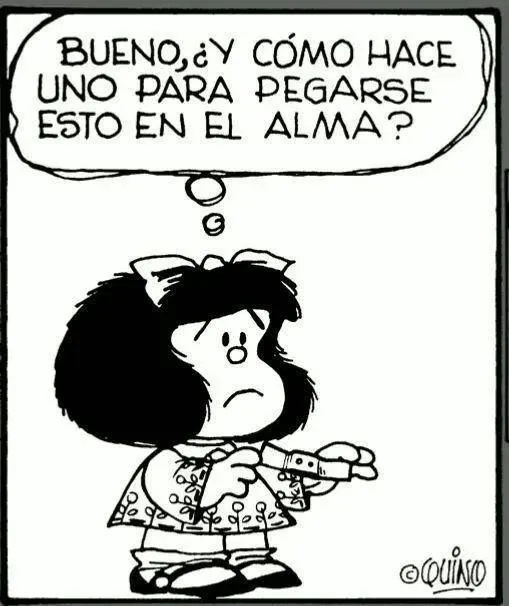A Girl at 60 Years Old
especiales

I don't remember my life without books to read and notebooks to draw and paint. I clearly visualise my childhood surrounded by papers and coloured pencils, plus beautiful books with illustrations of Soviet characters and landscapes that showed me a Europe covered in snow and furry and exotic animals.
As a child, those were my favourites, the illustrated books. Later, I discovered the comic books, and I had two or three I knew by heart, like Chicho Durañón, Súper López, and others whose names escape me, in addition to the classics Matojo and Elpidio Valdés, and more that appeared in the magazines of the time.
I knew about Mafalda because I once had it in my hands, but I never owned a copy for myself until, at almost 30 years old, I was able to buy All Mafalda, at an outrageous price, in the section of used books from the small Centenario del Apóstol bookstore, located at 164 25 Street, in Vedado, Plaza de la Revolución.
I saw it there and couldn't believe it: a beautiful, huge, very heavy edition, hardcover, even dust jacket, and made of a material like that of "before"; yes, nothing like the magazine paper or similar "kraft paper" colored ones that don't hold a tear from a sentimental reader. All of Mafalda was the only copy because that's how it is in the second-hand section, you only find unique pieces. That's why the cost also corresponded to more than a full month salary. But it didn't matter, it was worth it.
For a while it was the largest book in my library, the most precious, the highest quality, my treasure. I felt like a happy child, going back 20 years in my life, when I loved comics so much, but at that time I didn't have Mafalda, nor did I fully understand her demands because her illustrations seemed childish while her speeches had intensity and reasoned about issues that were not at all for children.

The curious thing about Quino's character (Joaquín Salvador Lavado Tejón) is that she appears to be a child, however, she reflects on every aspect of the world and constantly makes social criticism with the language of an idealistic, direct and witty adult, which leaves everyone around her perplexed, including the reader.
With a marked intellectual acuity, Mafalda shows curiosity and concern for social issues in her native Argentina, which are common on any corner of the planet. Justice, peace, inequality, hunger, politics, economy, are issues that she addresses and questions with awareness, mischief, humor, and irony, with the intention of helping us think.
Surrounded by her family and friends, Mafalda always finds a way to ask and answer in a clever, almost tender way, but with deep, bold, and daring thought behind each reason that reflects realities that still persist today. Her arguments reveal humanist ideas, against corruption, violence, and vulgarity.
Mafalda is universal, her speech crosses borders and eras, she is rebellious, irreverent, independent, in love with the Beatles, with an ecological, feminist, and pacifist inclination, and in favor of freedom of expression.
This girl who hates soup was born in March 1962, however, she was published for the first time in the political magazine Primera Plana, in Argentina, exactly 60 years ago, in September 1964. Her last comic strip was published in June 1973. By then she was already very popular, known for her lashing tongue.














Add new comment